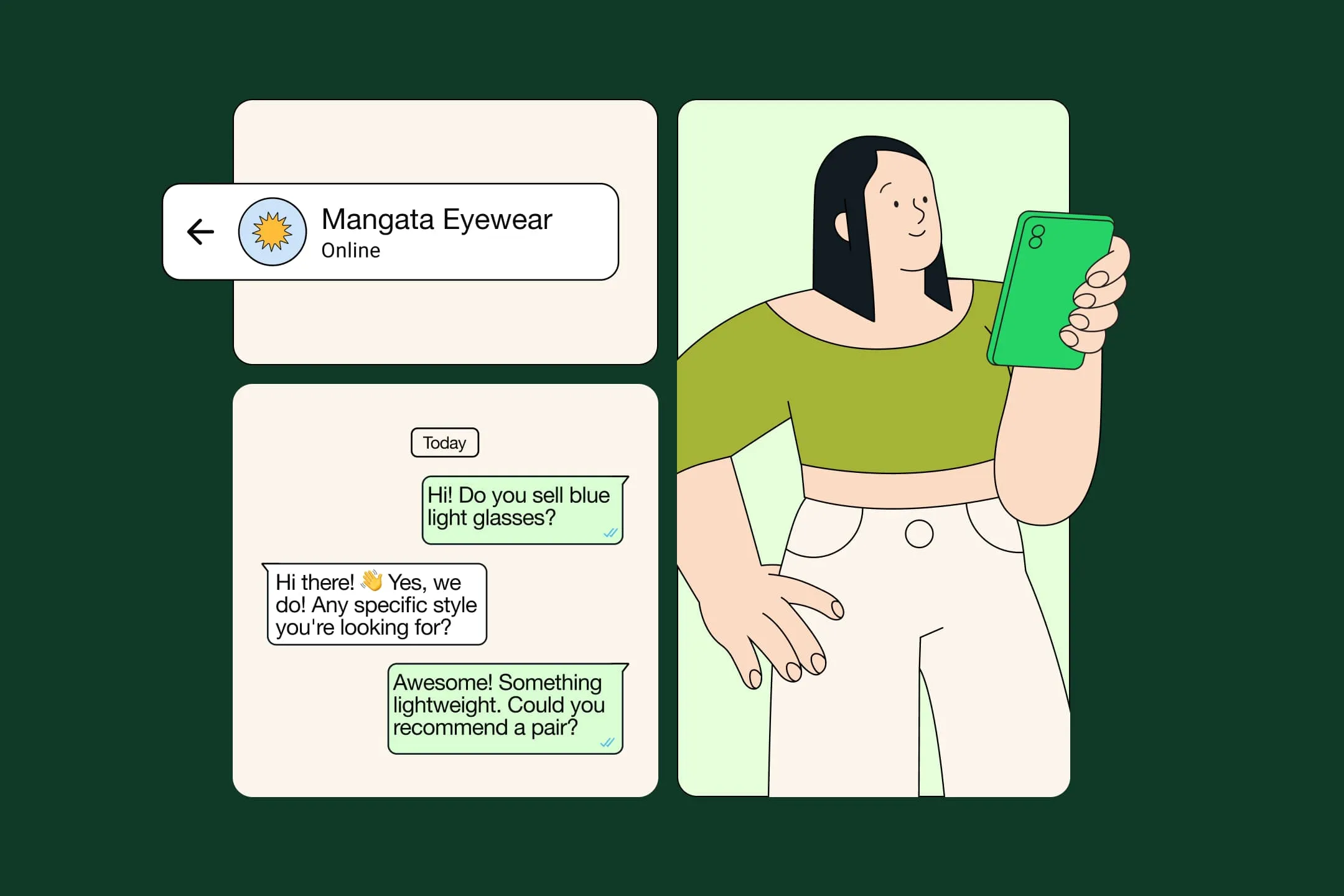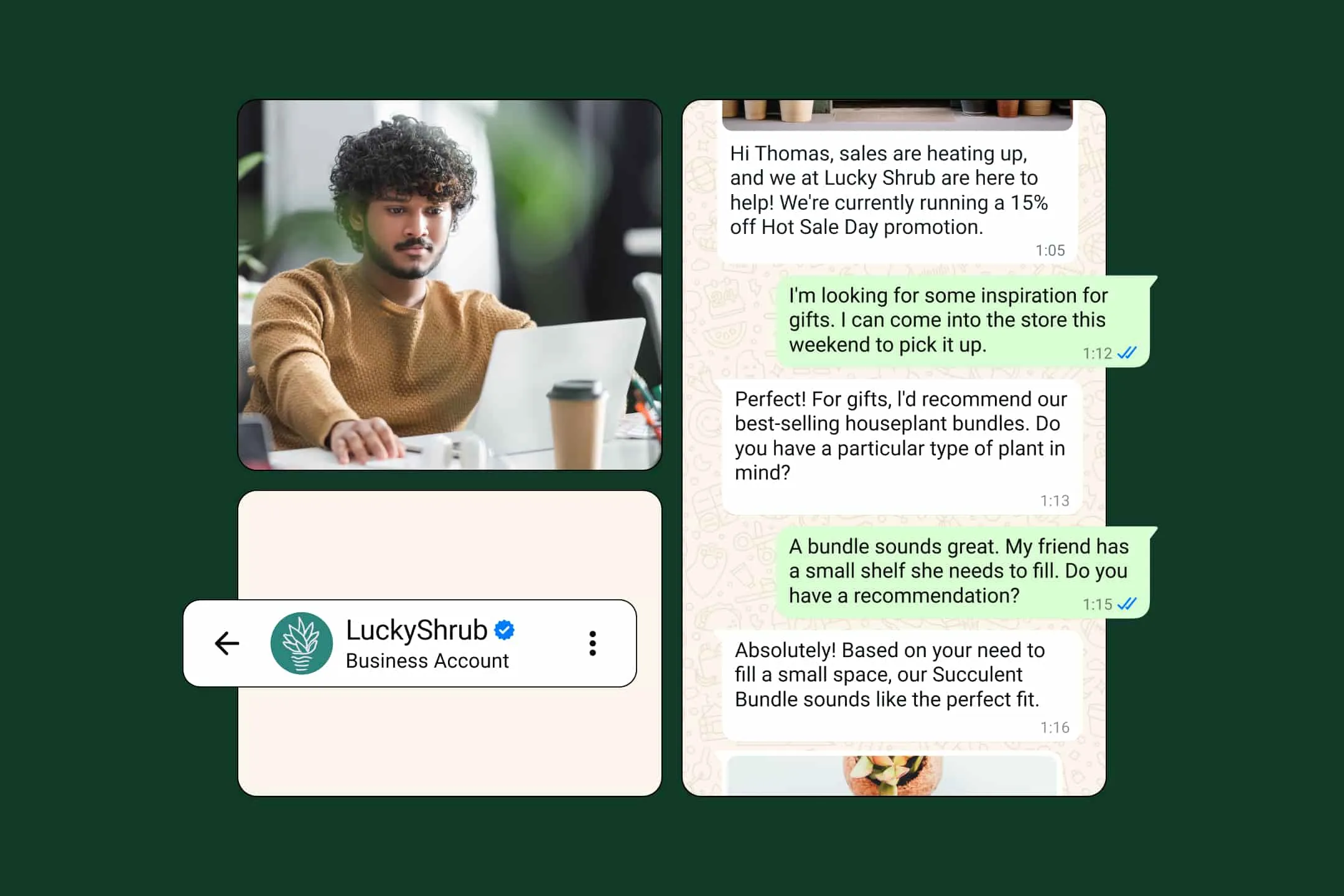Customer Care
Live Chat Customer Service: How Live Chat Drives Real-Time Support
|
July 23, 2025
Customer Care
|
July 23, 2025

Keeping customers happy is one of the most important things a business can do, but delivering consistent, timely customer service has become increasingly complex. Today's customers reach out through an array of channels—email, social media, SMS, phone—which can create a fragmented or frustrating experience. According to a Vonage Global Customer Engagement Report, 65% of consumers cite long wait times to speak to an agent as a frequent annoyance, highlighting a critical pain point in customer communications. Meanwhile, 42% want quick information via chat or messaging, even when phone calls are the only option.
Live chat support addresses these challenges by providing real-time resolutions to help reduce tension points and wait times. Let’s explore how live chat customer service helps businesses bridge communication gaps and meet consumer expectations for outstanding service.
Live chat support is a real-time, text-based communication tool that enables customers to chat directly with support agents through websites, social media, SMS, WhatsApp, and other messaging technology. It provides immediate, personalized assistance—often via a chat widget—helping to facilitate quick resolution of customer inquiries and enhance the overall customer service experience. This support can be initiated by either the customer or the brand and may also serve marketing or knowledge resources.
With live chat customer service, customers follow prescriptive steps to help resolve issues quickly and efficiently. This on-demand support helps businesses provide customers with what they want (timely resolutions) and avoid negative outcomes like abandoned carts or lost customers.
Advantages of live chat for seamless service resolution

Depending on business size, your customer service teams may be required to continuously monitor chat windows, which can strain resources and reduce availability during peak periods.
Instead, managed live chat offers on-demand coverage from trained agents who handle multiple conversations simultaneously. These live chat experiences can begin with automated onboarding, using preset options or qualifying questions to quickly get customers the help they need. Additionally, the data from these chats helps businesses understand customer pain points and improve support strategies.
Managed live chat can become a valuable tool for tracking customer journeys, informing training programs and developing more effective support processes over time.
Chatbots are automated programs that use AI and machine learning tools to provide rapid responses to customer questions. In contrast, managed live chat can include chatbots, but will always have a person who can step in for more complex issues.
Customers are likely to want immediate answers without the frustration of lengthy call hold times or waiting days for email replies. Live chat helps deliver instant responses while still providing a personalized touch. The benefits of live chat customer service for businesses can span:

Live chat software and applications are pivotal for businesses aiming to unlock their full service potential. By leveraging innovative solutions, like live chat apps, APIs and third-party integrations like those offered through the WhatsApp Business Platform, businesses can significantly enhance customer interactions and expand service reach. The best live chat software and applications features to look for can include:
For example, WhatsApp Business Platform helps enable companies to leverage powerful third party integrations that help customers get relevant answers quickly, transfer to human agents when needed, view billing information and submit support tickets—all within a familiar messaging environment.
Key implementation strategies:
When implementing live chat customer service to strengthen customer relationships, it’s important to consider all the ways customers may engage with your business through this channel. Here are five common live chat examples of engaging with customers at different stages of their conversation journey:

Live chat customer service can offer timely, valuable customer experiences along with critical business insights. For small businesses on WhatsApp, the WhatsApp Business app provides essential customer engagement automation features like greeting and away messages, plus built-in tools including quick replies and conversation labels. For businesses requiring larger-scale enterprise solutions, WhatsApp Business Platform enables advanced automation through chatbots and workflows that handle FAQs, route queries and send updates at scale.
By combining the capabilities of the WhatsApp Business Platform with the expertise of business messaging partners who can help integrate live chat customer service experiences into your workflows, businesses can deliver support that is both highly functional and genuinely user-friendly.
Scaling customer service can feel costly and complex, requiring investments in teams, software and ongoing training. Live chat support helps simplify service reach by helping to reduce friction and training overhead while maximizing engagement rates. Offering live chat support experiences on WhatsApp means embracing a strategic advantage that meets customers where they are in a way that can scale up as your business grows.